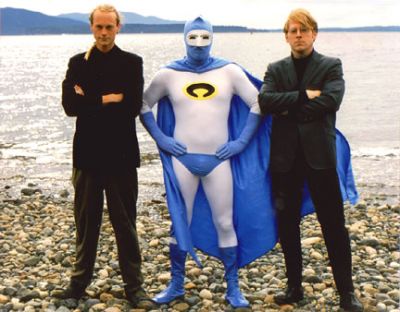DETROIT 300; BLACK MALE CITIZEN PATROLS & THE DANGER OF VIGILANTISM!

http://moveonup.ning.com/profiles/blogs/detroit-300-black-male-citizen-patrols-the-danger-of-vigilantism
Black men are routinely portrayed as crime figures- not crime fighters! Those choosing criminality and promoting it culturally ( in music; videos; clothing; etc ) now face rising opposition.
Detroit 300 is a very proactive, majority Black male citizen patrol working with police in a no-nonsense manner to get more chocolate Klansmen arrested!
HURRAY! AMEN! ALL PRAISES DUE TO GOD!!! These groups ( MAD DADS also immediately comes to mind ) represent the natural next step in the civil rights movement- opposing inner city violence without excuse nor apology.
We hae a Catch 22 regarding American public safety. Selective silence on Black homicide is seen elsewhere as support of crime.
Conversely too many Black men opposing crime would invariably prompt cries of ” vigilantism” from alarmed White observers more comfortable with perceived inaction.
While operating within the law, some Detroit 300 members and unaffiliated posers have crossed the line. Thankfully no George Zimmermans have emerged from their ranks and I don’t expect one to. They do a good job policing their own and are vital to culture change where they live.
Their legal war against rogue shooters; rapists and thieves is where the mainstream civil rights alphabet soup should be- fighting destructive elements within Inner City America.
WARNING: Black vigilantism is no better than vigilantism classic. Black versions of Byron Dela Beckwith ( activist Medgar Evers murderer ) and Bernhard Goetz ( New York’s Subway Vigilante ) represent horrific steps backward in advocacy.
Black male citizen patrols don’t have the luxury of violating rights or targeting suspects for summary assassination for at least two reasons.
POINT ONE: Vigilantism is wrong- no matter who does it.
POINT TWO: President and Attorney-General aside, we do not have enough clout among police; prosecutors and judges to provide ( illegal ) cover the way White vigilantes have until relatively recently.
Now, accused vigilantes of any color get tough treatment from the criminal justice system.
It’s against this back drop that the Detroit 300 and other Black male citizen patrols navigate with the danger of vigilantism allegations waiting in the wings more than other concerned citizens doing the same thing.
http://www.youtube.com/watch?v=7p1M9aZB5iw Detroit 300 initial press conference footage.
NADRA ENZI AKA CAPT BLACK promotes creative crime prevention and homeless outreach. (504) 214-3082
NADRA ENZI AKA CAPT BLACK
ANTI-CRIME ACTIVIST
CHOCOLATE KLANSMEN ALERT! SPEAKER
http://moveonup.ning.com/profiles/blogs/chocolate-klansmen-alert-speaking-tour

